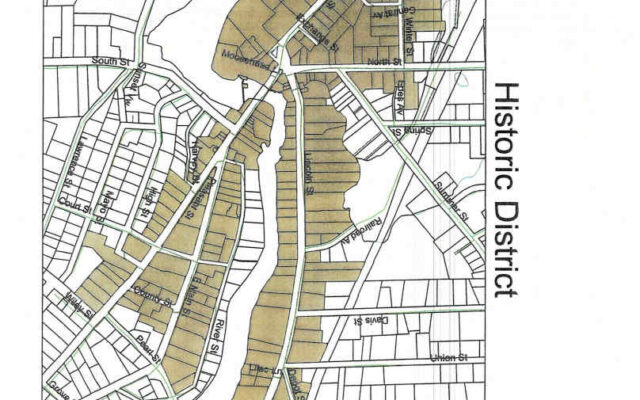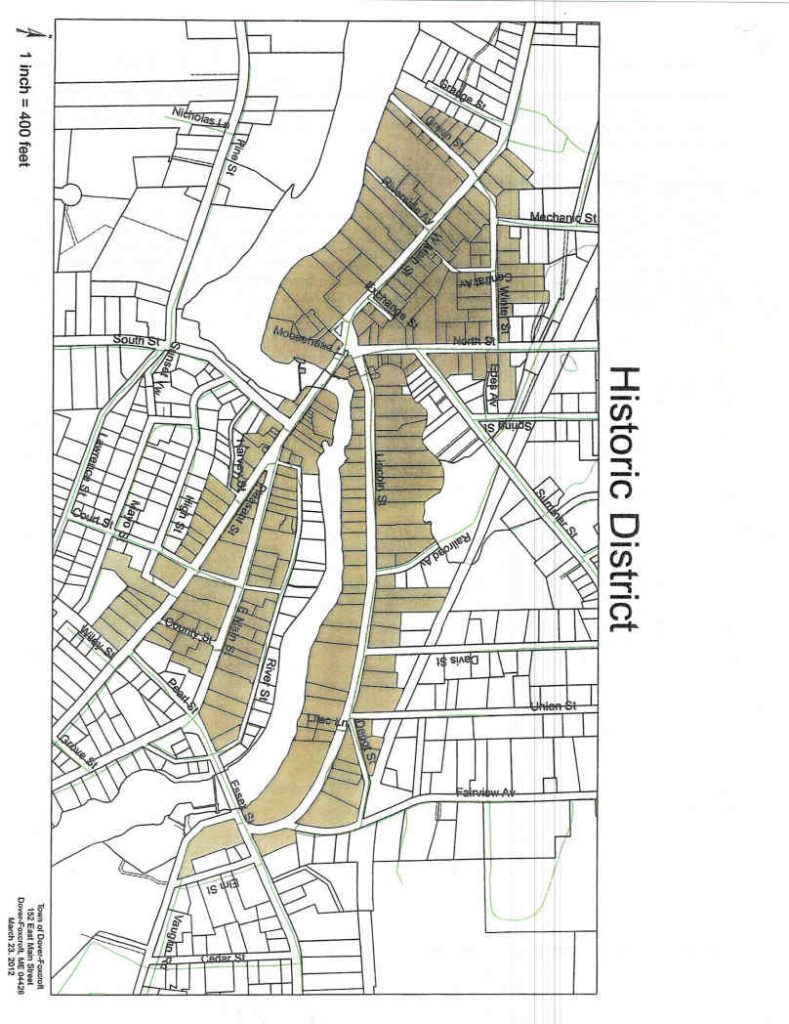
Dover-Foxcroft considers temporary pause on mobile home permits in historic district
DOVER-FOXCROFT — The Dover-Foxcroft Select Board voted this week to table a proposed moratorium that would temporarily halt permitting and construction of manufactured housing in the town’s historic district.
Nearly 30 residents with questions and concerns filled the meeting room at the Dover-Foxcroft Municipal Building for the hearing. Another 13 or so tuned in virtually.
Manufactured housing in the district threatens the area’s character and cultural value, says a draft of the moratorium ordinance. The moratorium would pause permitting for and placement of manufactured housing in the historic district so town officials can assess land use and consider how to protect the area and ensure public health and safety. But the board concurred the draft is too confusing to allow a final decision.
The board voted to table the item as suggested by Vice Chairperson Cindy Freeman Cyr. The moratorium should be comprehensive, and during the public hearing there was too much confusion surrounding its language, she said.
At Monday’s meeting, residents questioned how the moratorium would affect them and what types of structures fall into the category of manufactured housing.

HISTORIC DISTRICT — The Dover-Foxcroft Select Board voted to table a moratorium ordinance pertaining to manufactured housing in the historic district on Monday. This map, attached to the moratorium draft, shows shaded areas considered to be part of the town’s historic district.
“If a permit is already in place, it’s going to be grandfathered,” Code Enforcement Officer Brian Gaudet said. “After the moratorium goes into effect, for the next six months, I wouldn’t be able to issue permits [for manufactured housing] within the historic district until we get that ironed out.”
The document defines manufactured housing as “a structural unit or units designed for occupancy and constructed in a manufacturing facility and transported, by use of its own chassis or an independent chassis, to a building site.”
A resident asked if the town will differentiate between manufactured and modular homes, and whether someone could bring a modular-style home into town if the moratorium passes.
Gaudet said he would want the definition of manufactured housing and the difference between manufactured and modular to be clarified.
Gwen Hilton, the town’s land use planning consultant, said the moratorium could be revised not to affect modular homes. For example, the Select Board could revise it only to include mobile homes and doublewide homes.
The Dover-Foxcroft Planning Board initially discussed the moratorium at its March 3 meeting, when patrons and admirers of Lincoln Street requested a zoning change on mobile homes, according to the meeting minutes.
Barry Hutchins, a Select Board member and spokesperson for the group, asked the planning board to consider not allowing mobile homes on the street, the minutes said. The moratorium later expanded to include all historic district areas, Town Manager Jack Clukey said at the Select Board meeting March 28.
If approved, the moratorium would remain in effect for 180 days. The Select Board could extend, repeal or modify it.
Besides threatening historic character and cultural value, manufactured housing poses a threat to land use and structural compatibility, aesthetics and the town’s use of the area for community parades and events, according to the moratorium draft.
The “amount of development pressure was unanticipated and has not been adequately provided for in the town’s current land use regulations to prevent serious public harm,” the moratorium draft said.
The draft includes a map, with shaded areas falling into the historic district. The town’s historic districts are areas with a predominance of historical significance, Clukey said. Residents aren’t required to maintain the historic nature of their property, he said.
When a property is listed on the National Register of Historic Places, however, there is an expectation to preserve the building, Clukey said. For example, 19 buildings along East Main Street earned recognition as the Dover-Foxcroft Commercial Historic District in September 2021, which provides access to grant opportunities, federal income tax incentives and more.
“Having a historic district is a lot bigger than just having mobile homes, and there are a lot of regulations that come along with it,” said Herbert Aumann, who serves on the planning board. “Basically, right now, we have a historic district, but it’s in name only. People can do whatever they want to do.”
To rule out only mobile homes is “a very narrowed point of view,” Aumann said, urging the Select Board to consider the language in the moratorium.
“If you want to do it, do it right,” he said. “In other words, if you want to have a historic district, fine. I am all for it. But to do it and rule out a specific building, I think, is a mistake.”
Officials will revisit and clarify the moratorium draft and then schedule another public hearing at a later date.